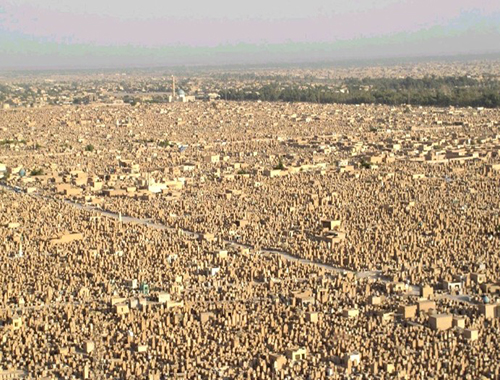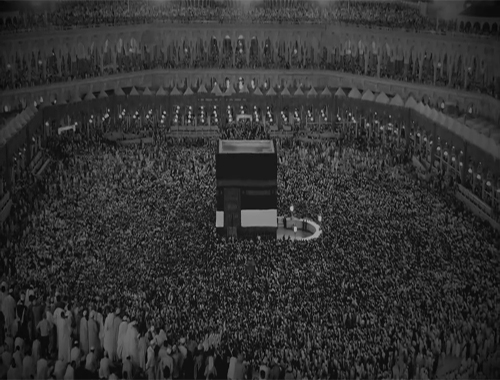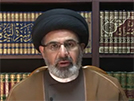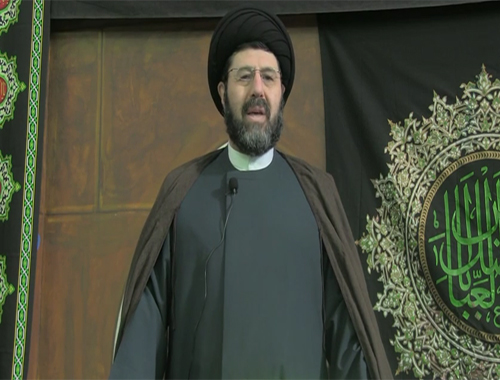Praying
- Details
- Hits: 3466
PRAYING
Question:
What are the Islamic acts of worship?
Answer:
The most important Islamic acts of worship are prayers, fasting, khums, zakat, jihad and hajj.
Since this book has been written in order to provide a brief introduction to Islam, we will forgo an explanation of the wisdom and reasons behind these acts of worship and so anyone who wishes to know about these aspects should refer to our book entitled “Islamic Acts of Worship”[6].
Question:
What are prayers? How many units do they have and what else is involved?
Answer:
Prayers are of two kinds: obligatory prayers and recommended prayers.
Question:
Which are the obligatory prayers?
Answer:
Obligatory prayers are performed in the following sequence:
1. Dawn prayer (called fajr or subh). This has two units[7], and its time is from dawn to sunrise.
2. Noon or Midday prayer (called dhuhr): four units, and its time is from the passing of the sun from the middle of the sky of the country where you happen to be until shortly before the sun sets beneath the horizon.[8]
3. Afternoon prayer (called ‘asr): four units, and its time is from after the noon prayer until the setting of the sun beneath the horizon.
4. Sunset prayer (called maghrib): three units, and its time is from sunset, which means in this case when the redness in the sky has passed from above one’s head (that is about a quarter of an hour after the actual sunset), until shortly before the middle of the night[9].
5. Evening prayer (called ‘isha’): four units, and its time is from after the sunset prayer until the middle of the night.
Question:
Do prayers while travelling differ from prayers in the place of residence?
Answer:
Yes. Prayers while travelling are “qasr - shortened” that is the midday (dhuhr), afternoon (‘asr) and evening (‘isha’) prayers should each be performed in two units like the dawn (fajr) prayer[10].
Question:
How is the prayer divided up?
Answer:
It is divided up as follows:
1. Saying Allahu akbar[11], after first having made the intention.
2. The reading of the first chapter (sura) of the Qur’an (al-Fatiha), and any one other chapter, while standing.
3. Bowing with its specific invocation[12].
4. Standing upright again after bowing.
5. Two prostrations with their specific invocation[13], respectively, and sitting up between the two prostrations.
6. Standing up straight again, then the recitation of al-Fatiha and any other sura (just like 2 above) followed by the Qunut prayers[14] which are recommended but not obligatory.
7. Then bowing and standing up straight, after bowing; two prostrations (just like 5 above) and sitting back; then the saying of the tashahhud[15] and the salam[16].
That is the way to pray two units. As for prayers of three or four units, however, in the third and fourth unit instead of reciting al-Fatiha and any other sura, special praises to God are recited[17].
Question:
What are the conditions of prayers?
Answer:
The conditions of prayers are as follows:
1. To stand facing the Qibla[18].
2. Cleanliness of dress, the body and the place of prostration.
3. Being in the state of purification by means of ablutions (wudu’)[19] or ghusl[20] or tayammum[21].
4. The clothes of the person praying and the place of prayer must have been lawfully acquired.
5. Not doing anything which nullifies the prayers while they are being performed as, for example, flatulence and so on, laughing, or turning away from the Qibla.
Question:
Are there other prayers besides the daily prayers which Islam has made obligatory?
Answer:
Yes.
1. The prayer over the deceased.
2. The prayer at the time of wondrous or fearful happenings (salat al-ayat)[22].
3. The prayer after the circumambulation (tawaf)[23].
4. Prayers performed on behalf of a dead person, if an individual is obliged to do them.
5. Prayers said after a vow.
There is a particular way to pray each of these other obligatory prayers and books on jurisprudence should be consulted for details.
Question:
Which are the prayers which are particularly recommended?
Answer:
There are many recommended prayers, for instance:-
1. Daily supererogatory prayers (nawafil)[24].
2. The special prayers for the month of Ramadan.
3. Recommended prayers on sacred days like religious festivals.
4. Prayers which have been narrated by the Prophet and the pure Imams, which they themselves used to perform and which are known by their names as, for instance, the Prayer of the Prophet (God’s blessings and peace be upon him and his progeny) and the Prayer of ‘Ali (peace be upon him).
5. Prayers which are recommended in various circumstances such as prayers when visiting holy shrines (either physically or at a distance), the special prayer to beseech Almighty God for rain (istisqa’), and the prayer of one who is in a state of fear.











